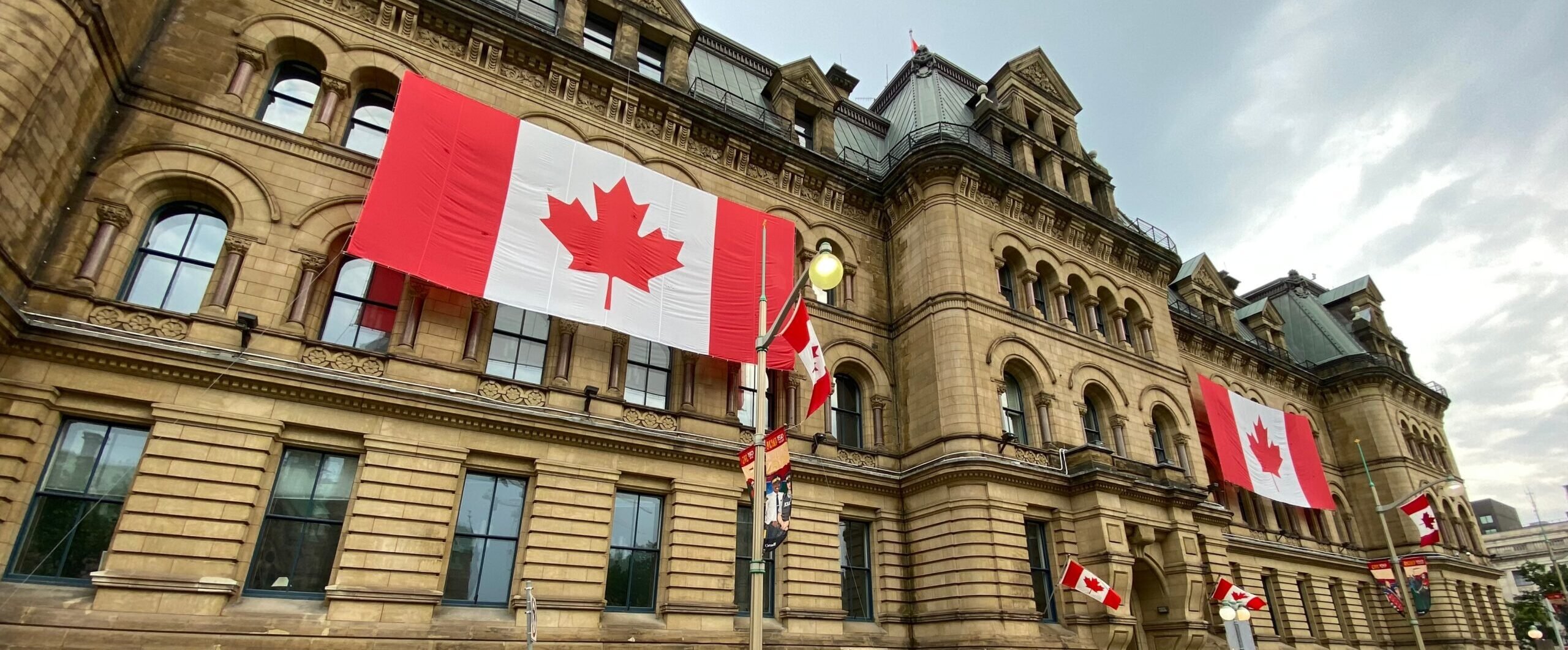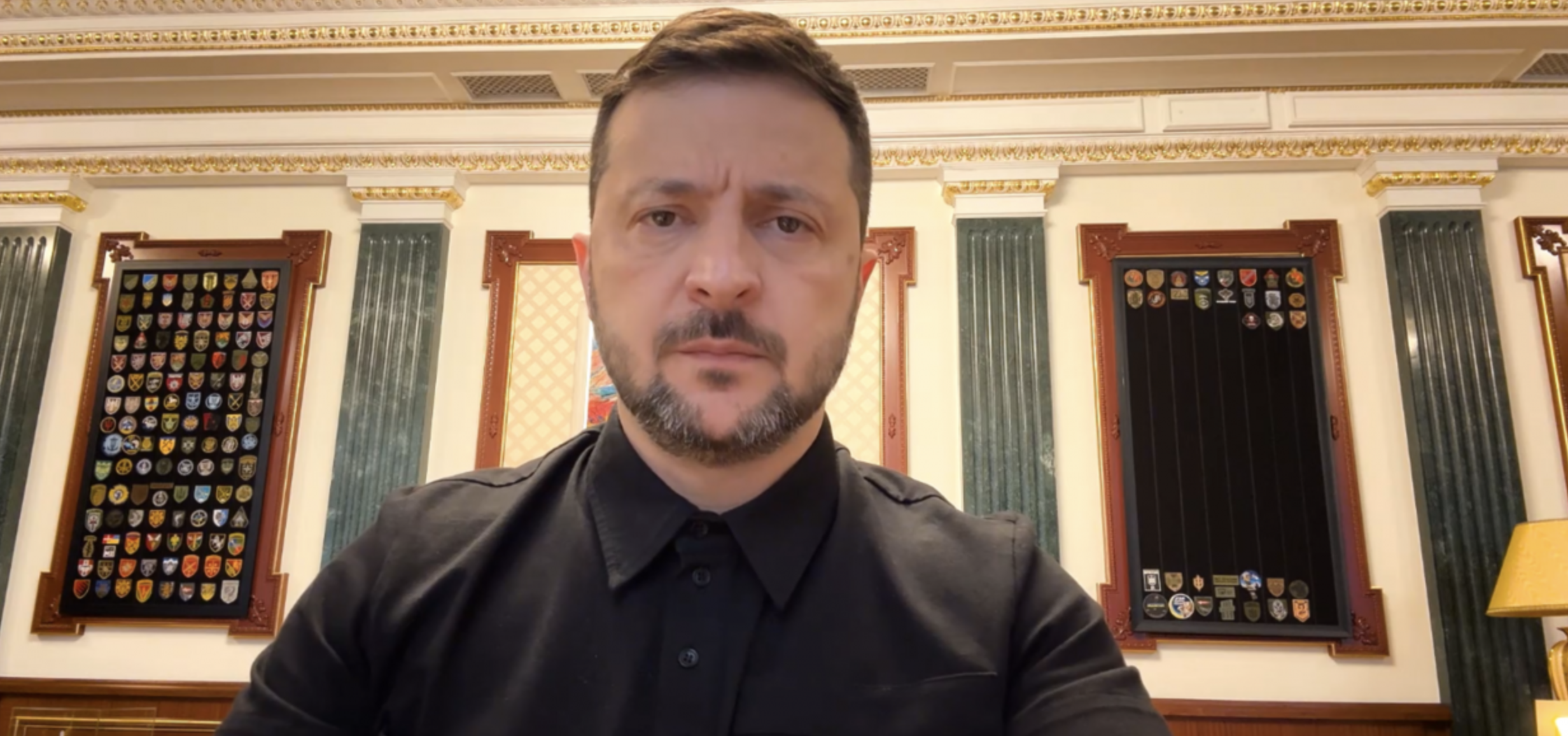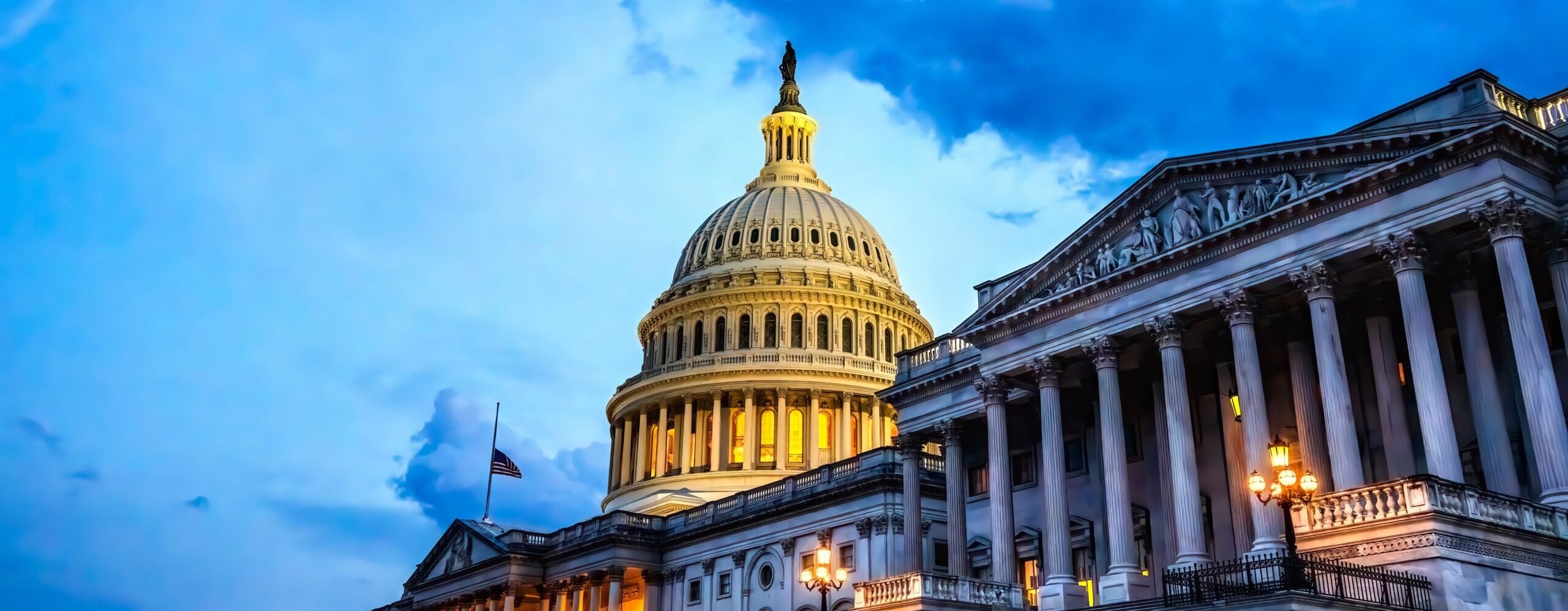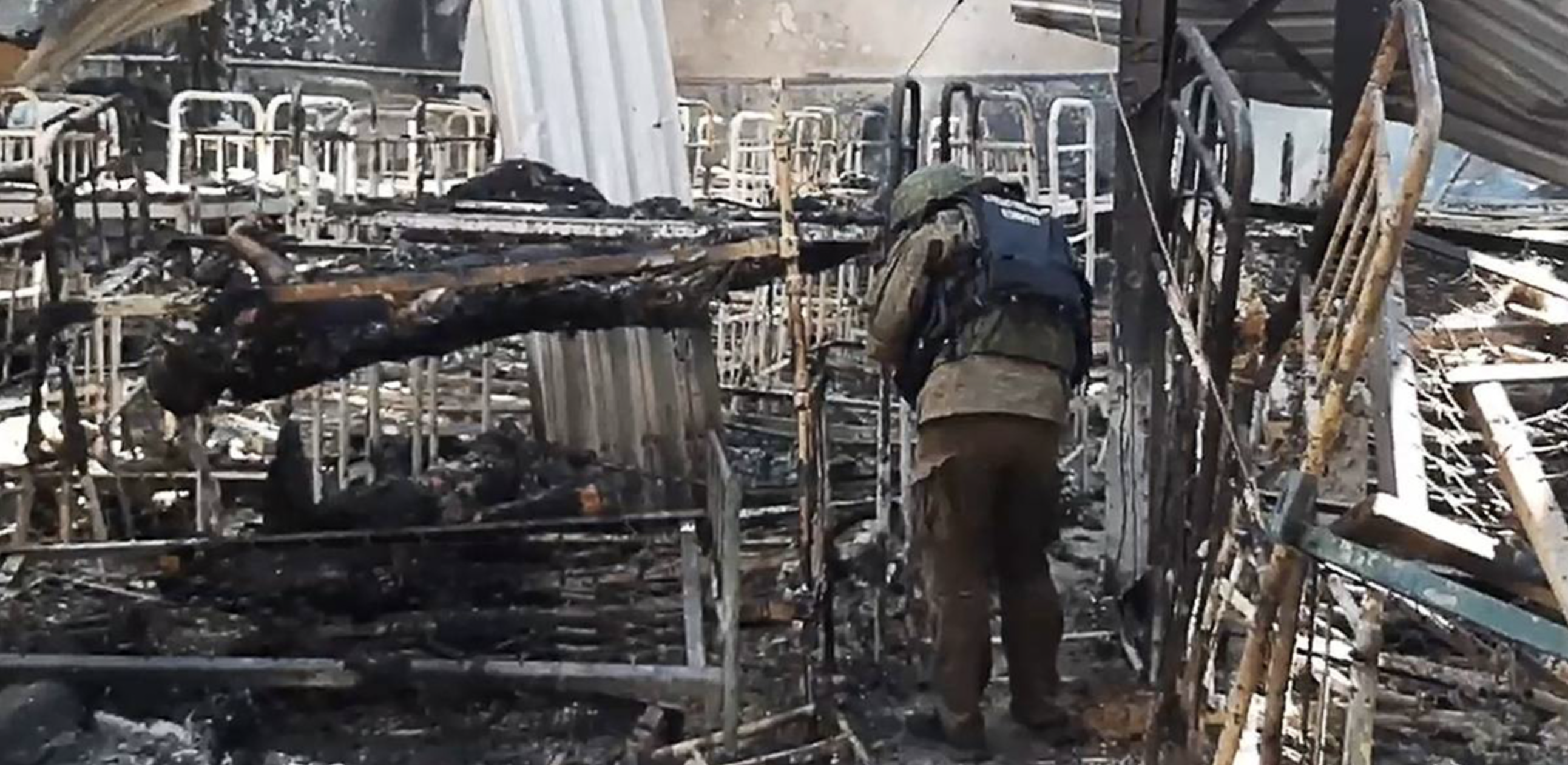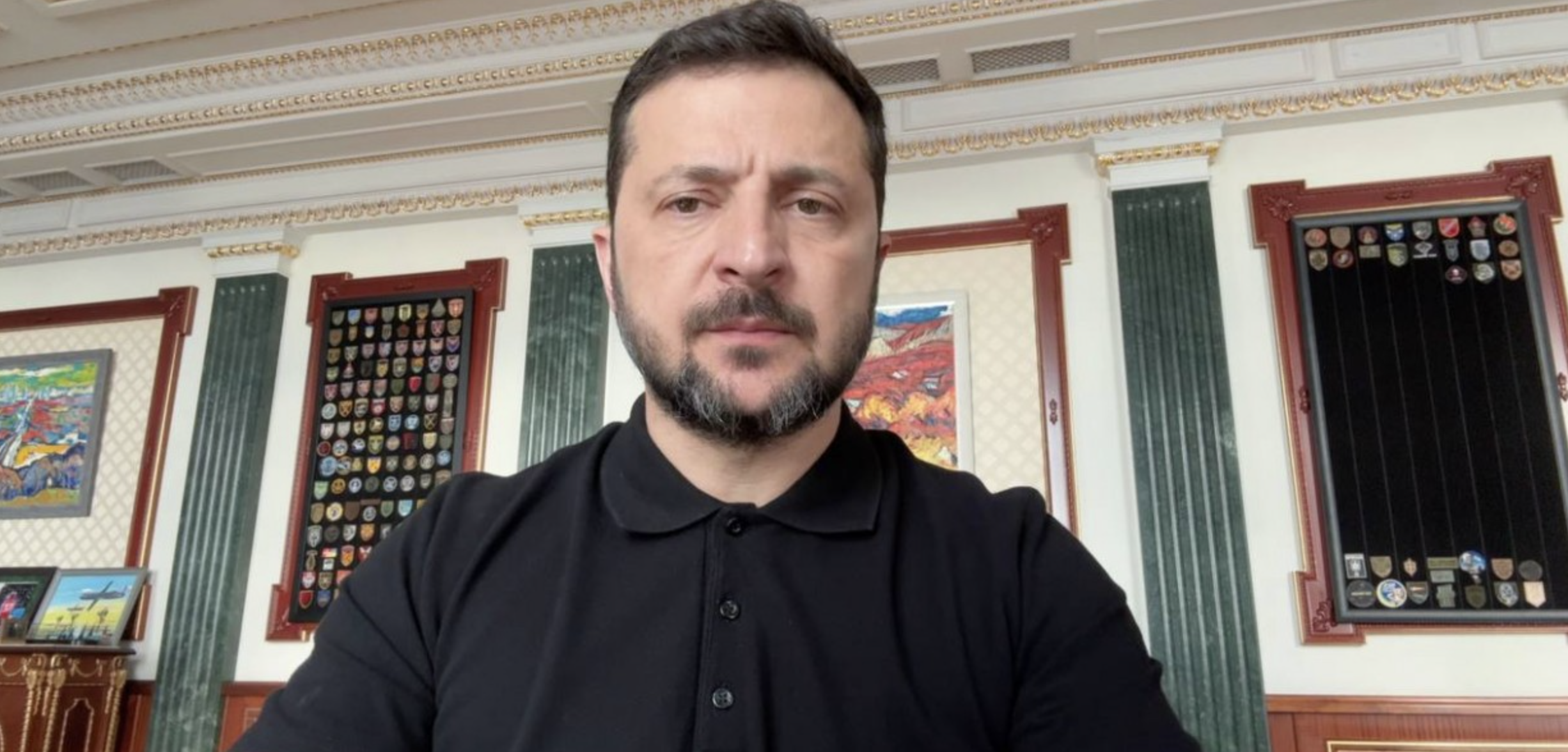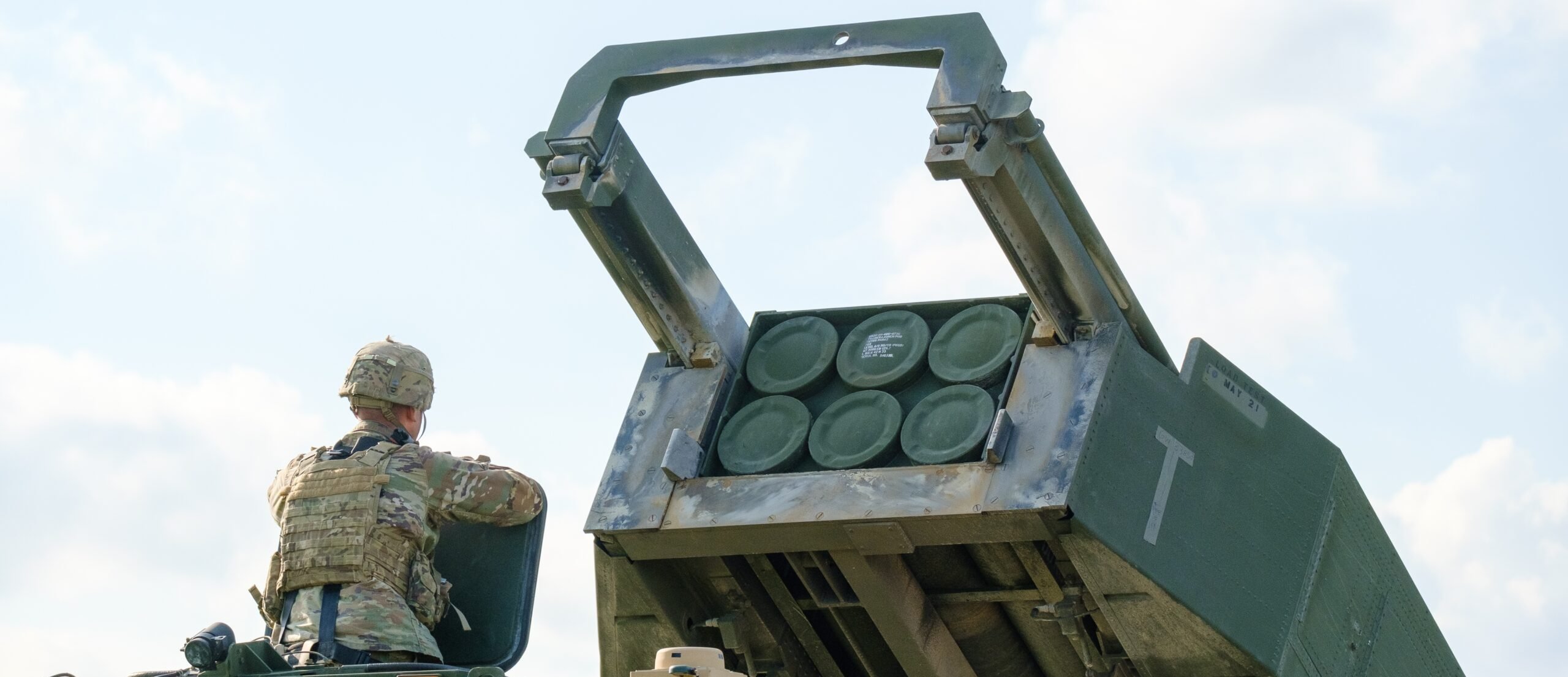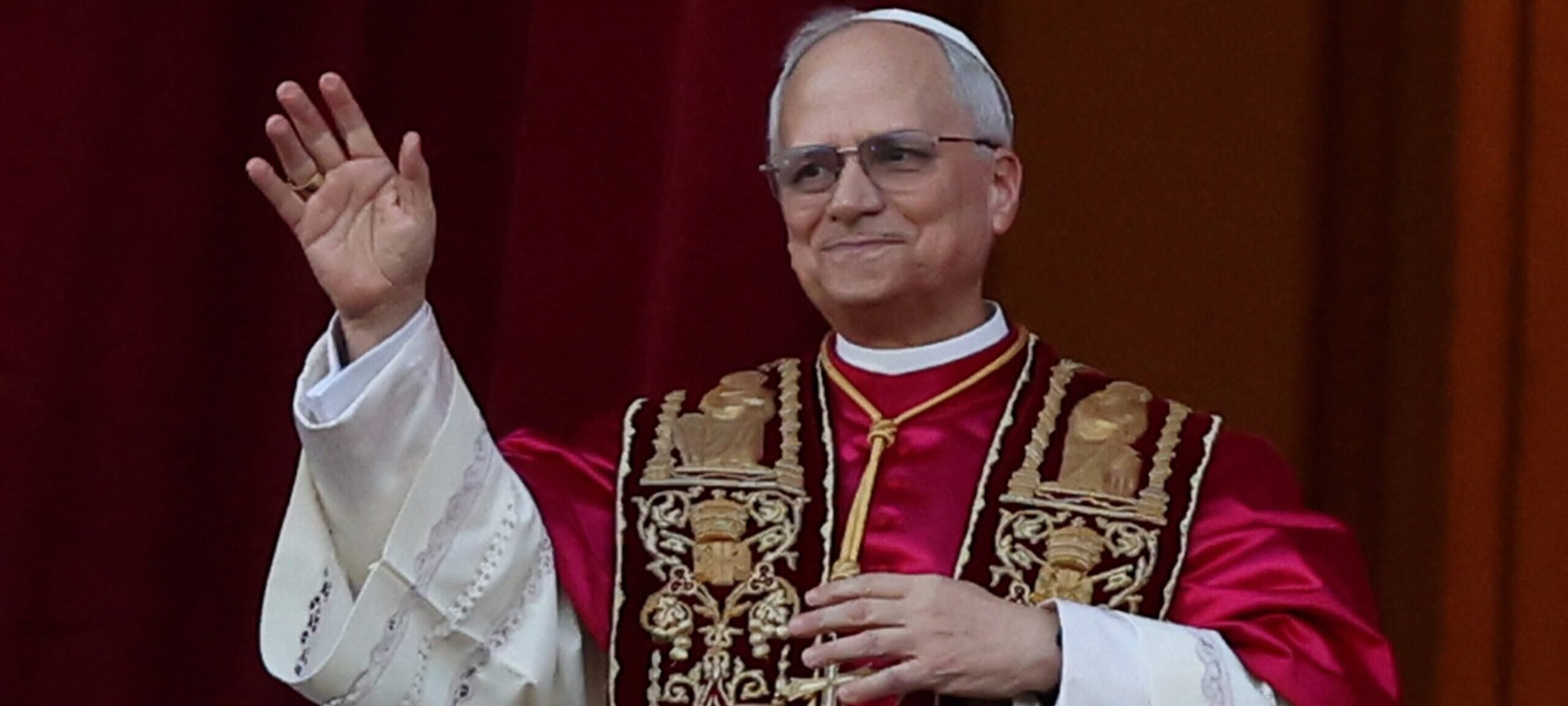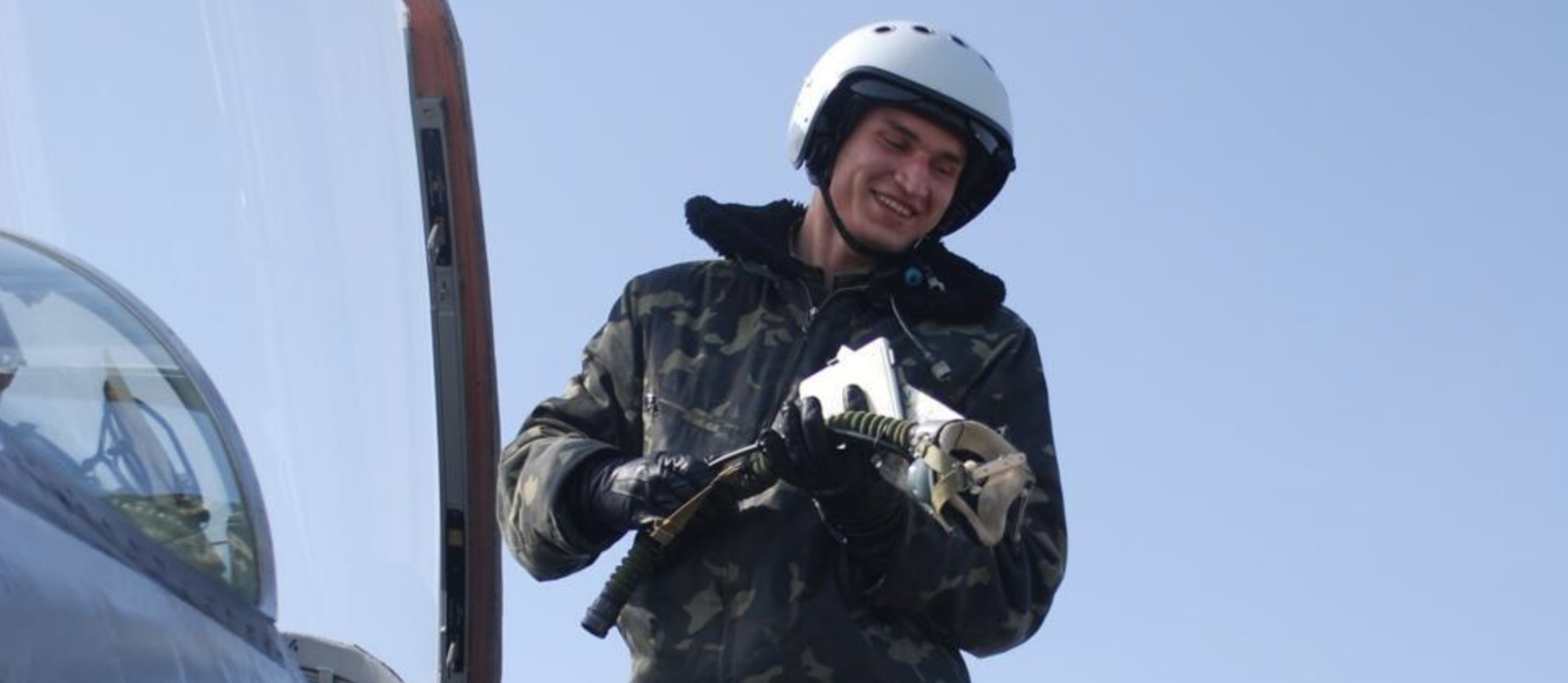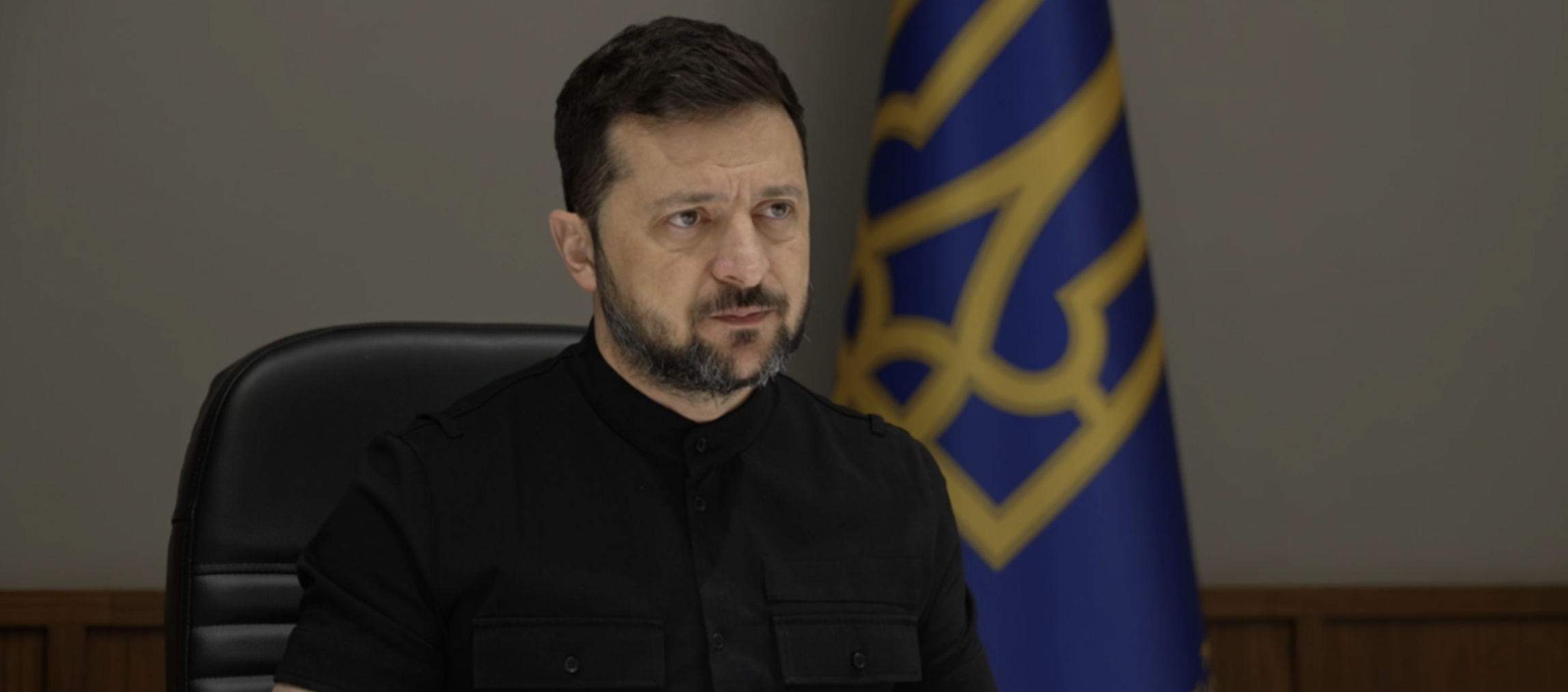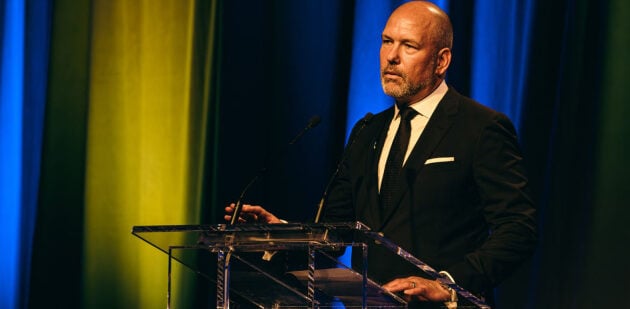
Following his reelection as President of the Ukrainian World Congress, Paul Grod granted an interview to the Ukrainian media outlet Ukrinform. In this exclusive conversation, Grod shed light on the future initiatives of the UWC, the potential of the global Ukrainian community, and strategies to address the international community’s waning interest in the ongoing war in Ukraine.
Last month, the XII Ukrainian World Congress took place, during which you were re-elected President of the UWC. What will be the priorities of your work over the next four years?
The priorities will remain unchanged from last year, but the tactics and strategy for achieving them will be refined. The three main areas of work of the Ukrainian World Congress are victory, rebuilding Ukraine, and a strong Ukrainian world. All three areas are mutually reinforcing, but different work is being conducted on each. Concerning the first priority, we are talking not only about assistance to the Armed Forces of Ukraine but also broader military, political, and economic support for Ukraine in the world. We are well aware that Ukraine can defend itself thanks to international support, so we sincerely thank the fifty countries that are already providing military assistance to Ukraine. However, we want to expand this circle. We are also aware that other countries’ commitment to Ukraine will only be maintained if their own civil society shares this attitude. Therefore, it is the responsibility of the global Ukrainian community to ensure that this strong support is provided by civil society and politicians. We are focused on ensuring that our partners do not give up and continue to support us by increasing their assistance.
In your opinion, how has the world’s support for Ukraine changed since the war?
In my opinion, support for Ukraine has increased during this time. In the last six months alone, there have been several positive developments, particularly in South America and Africa. The UWC intends to work even more actively in this area, and during the last Congress, elected 10 Vice Presidents responsible for all regions of the world, focusing on Latin America, Africa, and the Middle East. Overall, our organization now has chapters in more than 65 countries. We are ready to roll up our sleeves and work on Ukraine’s accession to the EU and NATO, as well as providing it with the necessary military, economic, and political support.
Recently, the Ukrainian Ministry of Foreign Affairs has also been paying attention to increasing support for Ukraine by the states of the Global South. Is this a priority for the UWC?
Yes, especially in South America, because many Ukrainians live there: in Brazil alone, there are more than 600,000 of us. Our compatriots also live in Argentina, Paraguay, and even Venezuela. The influence of Ukrainians in these countries is growing, and they are beginning to realize their role and responsibility for promoting Ukraine’s interests. There have already been some positive developments with the president of Brazil, and now the newly elected president of Paraguay is taking a pro-Ukrainian stance, as are the leaders of some Central American countries. Our member organizations and communities are actively working in these countries with civil society in its broadest sense. We are even talking about academia, which is aware of the Russian threat and is actively talking about it. The truth is on our side, so the leaders of our communities in South America must continue to be politically active in cultural diplomacy because it is already bearing fruit. In addition, we work closely with the Ukrainian Ministry of Foreign Affairs and embassies to coordinate our activities.
What is the Ukrainian community like in South America?
They are well aware that they are Ukrainians and are proud of it, cherishing Ukrainian culture. Due to the geographical distance, they do not come to Ukraine often, and most have never been there, but they still understand that this is their homeland. However, it should be noted that the leaders of our community in Brazil, Argentina, and Paraguay do travel to Ukraine and meet with the authorities, and then return to their countries and explain in detail why Ukraine needs to be supported. Such public diplomacy is important because interpersonal relationships have a great impact on people’s attitudes.
To win as quickly as possible, Ukraine desperately needs more weapons. What work is being done by the UWC to lobby for Ukraine’s interests in the world, particularly concerning military aid?
We are conducting several advocacy campaigns in Europe and North America to encourage them to increase military assistance to Ukraine. To do this more effectively, we have established a Strategic Advisory Board comprised of former distinguished generals from five NATO countries. We have worked with them to keep up the pressure on governments to increase military assistance. With our assistance, there is constant communication with the ministries of defense of allied countries in coordination with the Ukrainian security forces, which inform us of what they need.
Do you notice “fatigue” from Ukraine in the world?
There is fatigue, but it does not force partner countries to give up and refuse support. Our allies are well aware of the urgent need for further assistance to Ukraine. Russia’s war against Ukraine and Hamas’ war against Israel have shown that the modern world is divided into democratic and authoritarian terrorist states and that Ukraine is firmly in the former club. That is why we will always be supported, but Ukrainians worldwide must understand that everyone must work hard so that the world does not get tired. Wherever you live, you need to promote a positive image of Ukraine.
Does the UWC, as an organization, provide direct support to Ukrainian military units?
The UWC is implementing a very significant project called Unite with Ukraine, in which we, together with our partners, have raised over $95 million to assist the Armed Forces of Ukraine. This project was established at the beginning of the war when we purchased bulletproof vests, helmets, thermal imagers, military first aid kits, etc. Today, we have grown to the point where we buy powerful drones and armored vehicles. Just in September, during my visit to Ukraine, we handed over 50 armored tracked vehicles and 70 military transport vehicles, which are already operating on the front line.
How has our global community changed during the full-scale war?
The main thing is the emergence of a keen awareness of a common goal: Ukraine is in danger, and we, as the global Ukrainian community, must do everything possible to protect the country’s independence. This united the global diaspora. This awareness existed before, but the war has significantly strengthened it, and after the start of the full-scale invasion, we united as a global nation. Previously, there was an impression that there were different types of Ukrainians in Ukraine and abroad, but now everyone understands that we are one people. However, this feeling needs to be strengthened; we need to understand who we are. It doesn’t matter where we live: Canberra, Ottawa, Warsaw, Washington, Buenos Aires, or Berlin – we are united by Ukraine and the Ukrainian nation and by the fact that we cherish our language, culture, history, and traditions. This is what makes us feel like we are Ukrainians. It is our duty as global Ukrainians to maintain our identity rather than assimilate. Of course, we need to adapt and integrate into other societies but always remain Ukrainian.
How can this be done in today’s interconnected world?
First and foremost, our wonderful culture will help. I am proud to be a Ukrainian, and I know I am not the only one. In Brazil, there are already fifth-generation Ukrainians who still cherish their traditions and love being Ukrainian. In Canada, there are also fifth-generation Ukrainians who have lost their language but can dance, paint Easter eggs, and wear embroidered shirts-they are also proud of their Ukrainianness. Now, in addition to this cultural component, we are united by one big goal – the defense of Ukraine. We have to prepare for this task for many generations because the Russian enemy will not leave us quickly. Just as Russians tried to destroy us 90 years ago during the Holodomor or 300 years ago during the pogroms, they will continue their malicious attempts. However, the modern world is different from the one that existed in previous centuries. Now, we have our own independent state, a strong army, a powerful global diaspora and reliable friends. With this in mind, I am convinced of our victory, but we all have to work for it. Our children and grandchildren must be ardent patriots of Ukraine to continue to support and strengthen it.
What advice would you give to an average Ukrainian who lives abroad but wants to be useful to Ukraine?
Start by teaching children properly. Ask yourself whether your children understand what is happening in Ukraine, whether you are raising conscious Ukrainians who have Ukrainian friends, and whether they are armed with information to counter propaganda. That is, first of all, you need to pay attention to your own family, enroll your children in Ukrainian schools, youth organizations, and camps, and immerse them in the Ukrainian environment. If there is a lack of it near you, you need to create it. For example, if you need a kindergarten, then organize with other Ukrainians and create one, build communities. This is my first piece of advice because together we are strong. Through organized communities, we can reach the leadership of states and influence political processes and the media. The UWC constantly publishes various informational materials and encourages its member organizations to use them to persuade politicians to do more: recognize the Holodomor as genocide, provide more military assistance, increase economic support, impose new sanctions, etc.
Diaspora to provide human resources for Ukraine’s reconstruction
How can Ukrainians abroad contribute to postwar reconstruction?
Undoubtedly, the global Ukrainian community needs to consider rebuilding and prepare for it. In fact, rebuilding is already underway and requires significant assistance, so if you have the desire and ability, you should definitely get involved. The UWC supports many projects and encourages others to join them. One of our key projects is Energize Ukraine, in which we receive equipment from energy companies and donate it to rebuild Ukraine’s energy system. The second component of this project is financing the construction of microgrids in Ukraine. I will give an example of this in a school in Chernihiv, where this project is already being implemented. The school is installing solar panels, batteries, a generator, energy efficiency measures, and other necessary equipment connected to a single system. This way, if the central power supply is cut off, the school will still have heating and light. Such projects are needed today; they do not wait for the war’s end. When the big reconstruction begins after the victory, there will be a need for huge human resources, which will be the responsibility of the global Ukrainian community.
It was in light of the upcoming reconstruction that President of Ukraine Volodymyr Zelenskyy met with Canadian business professionals during his visit to Canada in September. Do you notice an increase in Canadian business interest in Ukraine?
It is important to realize that the best partners in rebuilding Ukraine will be small and medium-sized businesses. In developed countries, it is small and medium-sized businesses that form the backbone of the economy and provide the majority of jobs. They are flexible and innovative so that they will become the generator of Ukraine’s economic recovery. All large companies, pension funds, and the like have great restrictions, and, given the security situation in Ukraine, it will be very difficult for them to invest there. At the same time, we urge our partner countries to create war risk insurance programs. No company will invest in Ukraine when missiles are hitting it, and there is a threat that the investment will be destroyed in a few minutes. However, investors will be willing to take risks if they know that a solvent foreign government is ready to provide insurance. Given this condition, there is already interest. There are regular reconstruction conferences around the world that our member organizations – mostly chambers of commerce – organize together with Ukrainian businesses, associations, the government, and an agency like UkraineInvest.
How would you characterize the current level of interaction and communication between the UWC and the Ukrainian authorities?
Frankly speaking, it’s very good; we are in constant dialog. We work with the President’s Office, the Parliament, and most ministries. I can count the ministries with which we do not interact. So we have good communication with all branches of government, but we need more hands to handle all the projects. That’s why we call on volunteers from all over the world – Ukrainians or friends of Ukraine – to join us, because there is a lot of work to be done, as we are perceived as a bridge that can bring support and experience from abroad.
How effective is Russian propaganda in the world?
Russian propaganda ranges from the brutal to the highly nuanced. The former tells nonsense about Ukraine being ruled by a Nazi regime that needs to be changed immediately, etc. However, this is not accepted in the democratic, civilized world. The main consumers of such crude propaganda are authoritarian regimes and the domestic Russian audience. More dangerous is the more subtle disinformation that, among other things, tries to spread hostility between refugees and citizens of their host countries. Over the past three months, I have traveled to 11 European countries, and I have noticed this narrative in many places. It is important to ensure that politicians in all countries recognize this propaganda and fight it. Artificial political projects that try to exploit historical problems using the symbolism of no longer existing state entities are also dangerous. However, these attempts are not new; Russians have been trying to sow ethnic hatred for decades. Given this, the global Ukrainian community needs to constantly tell the truth and inform the public about the current situation.
According to you, the Ukrainian community and Ukraine’s role in the world have been significantly strengthened during the war. How can this influence be maintained after the victory, when the events in Ukraine will no longer be reported on every screen?
The global Ukrainian community has indeed become stronger, and after the victory, it will become even more powerful because it will be more organized, more numerous, and more conscious. But to achieve this, it is essential that after the victory, we do not lose our unity or curtail the coordination work we have begun. We have to be prepared that, having attacked Ukraine many times over the centuries, Russia can do it again and again, and if we lose international support, Ukraine will be in danger again. I hope this makes people realize that without a united global Ukrainian people, we can lose Ukraine. We need to rise to the top of society, to be in government, medicine, science, education, business, culture – everywhere. Ukraine requires us to be the most influential. We must also teach our children this: wherever Ukrainians live, they must be at the top of society and do everything possible to rebuild a new Ukraine.
Finally, I will ask about the 90th anniversary of the Holodomor genocide. What is the UWC planning for this sad date?
It is necessary to know your history because, without it, it is impossible to understand the direction of movement. That is why we have been working with different countries for many years to get them to recognize the Holodomor as an act of genocide. We are constantly in contact with politicians, providing them with information, gradually yielding results. To ensure we remember what happened, the UWC created the Holodomor Descendants Network project, which collects testimonies about this crime worldwide. We constantly remind descendants of Holodomor victims to tell the stories of their families so that they are not lost. In this context, the UWC contributes to creating the Holodomor Museum in Kyiv, as we recognize the importance of a scientific institution designed to educate the world about the Holodomor. The UWC places significant emphasis on raising awareness about the Holodomor, as it believes comprehending this historical tragedy holds global significance. This understanding serves as a crucial tool in illuminating the motives behind Russia’s continued attempts to undermine the Ukrainian nation.
